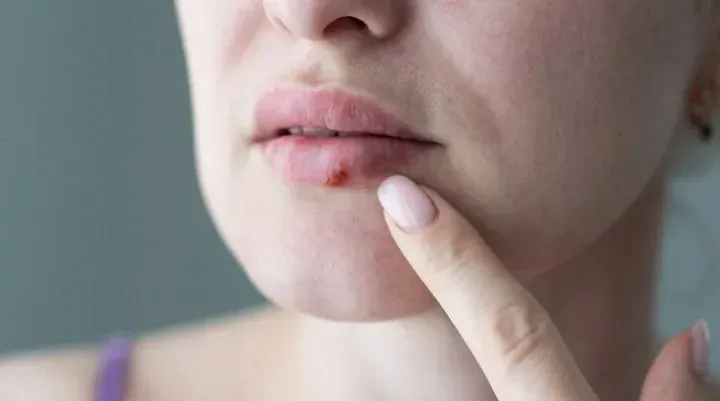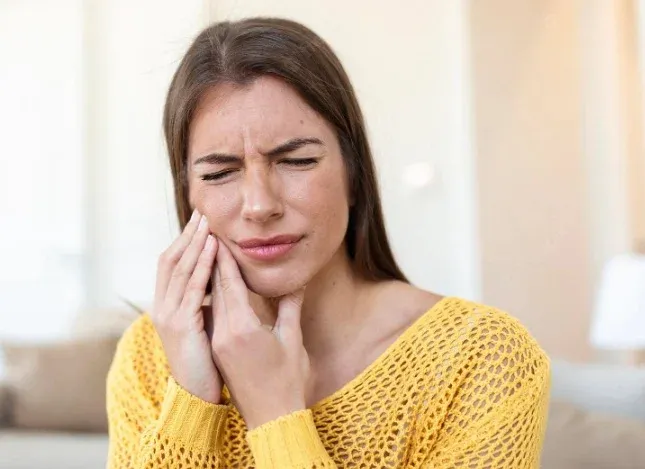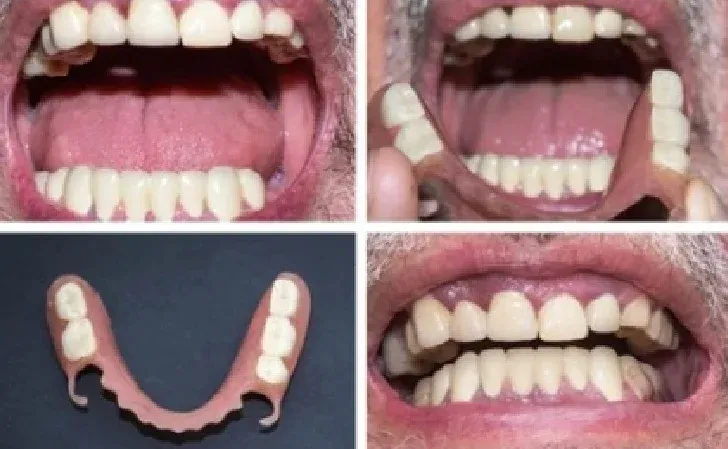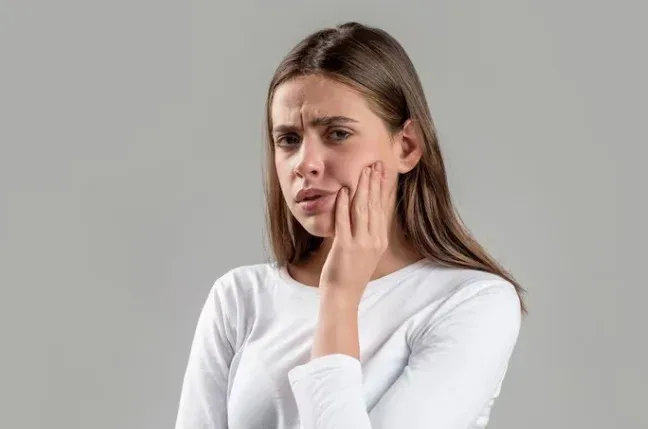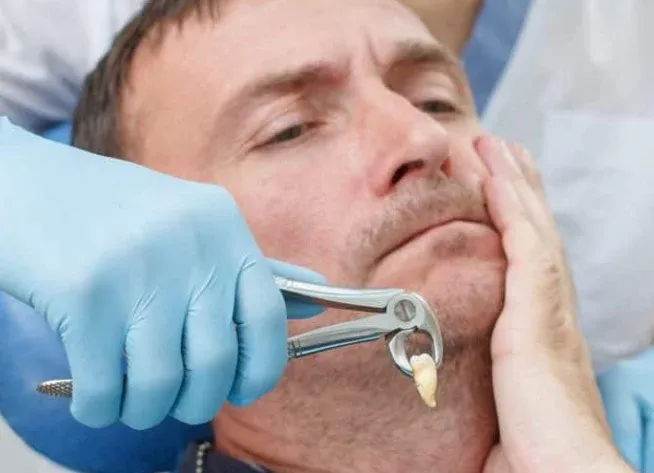How to Get Rid of Cold Sores in 24 Hours: Fast Relief Strategies for 2026
If you’re searching for how to get rid of a cold sore in 24 hours, you’re…
If you’re searching for how to get rid of a cold sore in 24 hours, you’re not alone. Cold sores can be painful, embarrassing, and frustrating. While completely eliminating a cold sore within a single day is extremely challenging, there are proven strategies in 2026 that can significantly reduce symptoms, speed healing, and help you feel more comfortable fast.
In this comprehensive guide, we’ll explore the most effective treatments available today, from prescription antivirals to over-the-counter remedies and home care techniques that actually work.
Understanding Cold Sores: What You’re Dealing With
Cold sores, also known as fever blisters, are small, fluid-filled blisters that typically appear on or around the lips. They can also develop on the nose, chin, cheeks, or even inside the nostrils. These painful lesions are caused by the herpes simplex virus type 1 (HSV-1), a highly contagious virus that spreads through close contact, kissing, or sharing items like towels, utensils, or lip balm.
The typical cold sore progression follows these stages:
- Tingling stage: You may feel tingling, burning, or itching before any visible blister appears
- Blister stage: Small, painful, fluid-filled blisters form on the affected area
- Weeping stage: The blisters burst and ooze fluid, becoming highly contagious
- Crusting stage: A yellow or brown crust forms over the sore
- Healing stage: The crust falls off and the skin heals, usually without scarring
The entire process typically takes 7 to 10 days, though it can last up to two weeks in some cases. Understanding these stages helps you intervene early for the best results.
Why it helps: Clinically proven to shorten healing time when applied at the first sign of a cold sore outbreak.
Can You Really Get Rid of a Cold Sore in 24 Hours?
Let’s be honest: completely eliminating a cold sore in just 24 hours is nearly impossible. However, with aggressive early treatment, you can dramatically reduce symptoms, minimize the blister’s size, and potentially prevent it from fully developing. The key is catching it during the tingling stage—before the blister appears.
When you act fast with the right combination of treatments, you can:
- Reduce pain and discomfort by 50-70% within the first day
- Prevent the blister from reaching full size
- Shorten the overall healing time from 10 days to 4-5 days
- Minimize the risk of spreading the virus to others
The Most Effective Fast-Acting Treatments for 2026
Prescription Antiviral Medications
For the fastest and most effective results, prescription antiviral medications are your best option. These work by stopping the virus from replicating, which can significantly shorten outbreak duration:
Acyclovir (Zovirax): Available as a cream or oral medication, acyclovir can reduce healing time by 1-2 days when started early.
Valacyclovir (Valtrex): This oral medication is highly effective when taken at the first sign of symptoms. A single-day, high-dose treatment can dramatically reduce outbreak severity.
Famciclovir (Famvir): Another powerful oral antiviral that works best when taken within 48 hours of symptom onset.
If you experience frequent cold sores, talk to your healthcare provider about keeping a prescription on hand so you can start treatment immediately when you feel that telltale tingle.
Over-the-Counter Topical Treatments
Several OTC options can provide relief and speed healing:
Docosanol (Abreva): The only FDA-approved non-prescription antiviral cream for cold sores. Apply it five times daily at the first sign of symptoms.
Benzyl alcohol (Zilactin): Helps relieve pain and may shorten healing time.
Lysine ointment: Some studies suggest lysine can help reduce outbreak duration and severity.
Pain Relief and Symptom Management
Managing discomfort is crucial during the first 24 hours:
- Oral pain relievers: Ibuprofen or acetaminophen can reduce pain and inflammation. Take as directed on the package.
- Topical numbing agents: Products containing benzocaine or lidocaine can provide temporary pain relief.
- Cold compresses: Apply a cool, damp cloth to the affected area for 10-15 minutes several times daily to reduce swelling and pain.
Why it helps: Daily lysine supplementation may help reduce the frequency and severity of cold sore outbreaks.
Home Remedies That Actually Work
While home remedies won’t cure a cold sore in 24 hours, they can provide comfort and support healing:
Ice application: Apply ice wrapped in a thin cloth to the affected area for 10 minutes every hour during the first day. This can reduce inflammation and numb pain.
Aloe vera gel: Pure aloe vera has antiviral and anti-inflammatory properties. Apply it gently to the sore several times daily.
Lemon balm: Studies show that lemon balm cream may help reduce healing time and prevent future outbreaks.
Petroleum jelly: Keep the area moisturized to prevent cracking and secondary infection.
Avoid touching: Keep your hands away from the sore to prevent spreading the virus and causing secondary bacterial infection.
What NOT to Do: Common Mistakes That Make Cold Sores Worse
Don’t Apply Crushed Ibuprofen Directly
You may have heard about applying crushed ibuprofen on cold sores. This is not recommended and can actually cause more harm than good. Ibuprofen is designed to be taken orally, and applying it topically can irritate the delicate skin around your lips, potentially worsening inflammation and delaying healing.
Instead, take ibuprofen as directed on the package for systemic pain relief and inflammation reduction.
Other Practices to Avoid
- Picking or popping blisters: This increases infection risk and can spread the virus to other areas
- Using harsh chemicals: Rubbing alcohol, hydrogen peroxide, or other harsh substances can damage tissue
- Sharing personal items: Don’t share towels, utensils, lip balm, or other items that touch your mouth
- Kissing or close contact: Avoid intimate contact until the sore has completely healed
Can You Get Rid of Cold Sores Forever?
Unfortunately, once you’re infected with HSV-1, the virus remains in your body for life. It lives dormant in nerve cells and can reactivate when triggered by various factors. There is currently no cure that can completely eliminate the herpes simplex virus from your system.
However, you can manage the condition effectively and reduce outbreak frequency significantly:
Long-Term Management Strategies
Suppressive antiviral therapy: If you experience frequent outbreaks (more than 6 per year), your doctor may prescribe daily antiviral medication to suppress the virus and reduce outbreak frequency by 70-80%.
Identify and avoid triggers: Common triggers include:
- Stress and fatigue
- Excessive sun exposure (always use SPF lip balm)
- Illness or weakened immune system
- Hormonal changes (menstruation, pregnancy)
- Certain foods high in arginine (chocolate, nuts, seeds)
- Dental work or trauma to the mouth
Boost your immune system: Maintain a healthy lifestyle with:
- Adequate sleep (7-9 hours nightly)
- Balanced, nutrient-rich diet
- Regular exercise
- Stress management techniques
- Daily lysine supplementation (1,000-3,000 mg)
Sun protection: UV exposure is one of the most common triggers. Use a lip balm with SPF 30 or higher whenever you’re outdoors.
If you’re dealing with severe dental pain alongside your cold sore, you may want to explore options for managing tooth nerve pain safely and effectively.
Why it helps: Combines lysine with healing herbs and vitamins to support faster healing and provide soothing relief.
When to See a Doctor
While most cold sores can be managed at home, seek medical attention if:
- The cold sore doesn’t heal within two weeks
- You experience severe pain that isn’t relieved by OTC medications
- The sore spreads to your eyes (this requires immediate medical attention)
- You have a weakened immune system due to illness or medication
- You develop signs of secondary bacterial infection (increased redness, swelling, pus)
- You experience frequent outbreaks (more than 6 per year)
- You have difficulty eating or drinking due to mouth sores
Your healthcare provider can prescribe stronger antiviral medications and discuss long-term suppressive therapy options.
Prevention: Your Best Defense
The best way to deal with cold sores is to prevent them from occurring in the first place:
Practice good hygiene: Wash your hands frequently, especially after touching your face or mouth.
Don’t share personal items: Keep your towels, utensils, lip products, and drinking glasses separate from others.
Manage stress: Chronic stress weakens your immune system and can trigger outbreaks. Practice relaxation techniques like meditation, yoga, or deep breathing.
Protect your lips: Use SPF lip balm daily and reapply every two hours when outdoors.
Support your immune system: Eat a balanced diet rich in vitamins C, E, and zinc. Consider taking a daily multivitamin.
Get adequate rest: Fatigue and lack of sleep can trigger outbreaks. Prioritize 7-9 hours of quality sleep each night.
Similar to how you might need to learn how to prepare for wisdom teeth removal, being prepared for cold sore outbreaks with the right supplies on hand can make a significant difference in your treatment success.
The Bottom Line: Realistic Expectations for Fast Relief
While you can’t truly get rid of a cold sore in 24 hours, you can take aggressive action to minimize symptoms and speed healing significantly. The key is acting fast at the very first sign of tingling or discomfort—before the blister fully develops.
Combine prescription or OTC antiviral treatments with pain management, proper wound care, and immune support for the best results. With the right approach, you can reduce a 10-day outbreak to just 4-5 days and minimize discomfort throughout the healing process.
Remember that HSV-1 is a manageable condition. With proper treatment, lifestyle modifications, and preventive measures, you can reduce outbreak frequency and severity, allowing you to live confidently without constant worry about cold sores.
If you’re experiencing persistent oral health issues beyond cold sores, such as concerns about tooth decay at the gum line, it’s important to address these with your dentist to maintain overall oral health.
Stay prepared, act quickly when symptoms appear, and work with your healthcare provider to develop a personalized management plan. With these strategies in place, you’ll be equipped to handle cold sore outbreaks effectively in 2026 and beyond.

